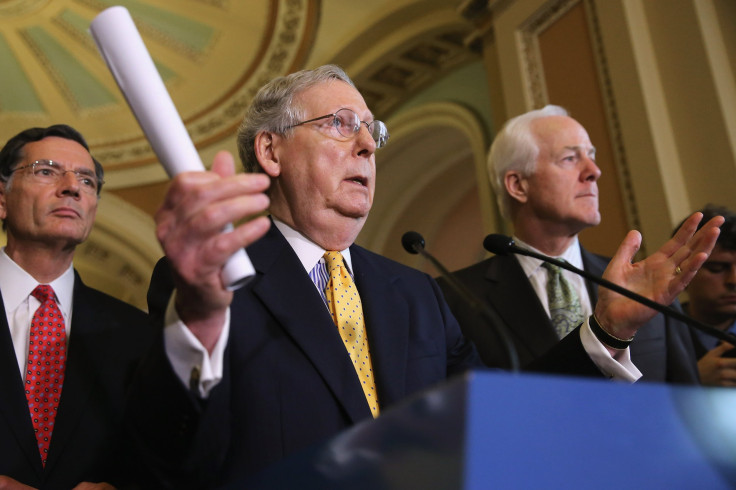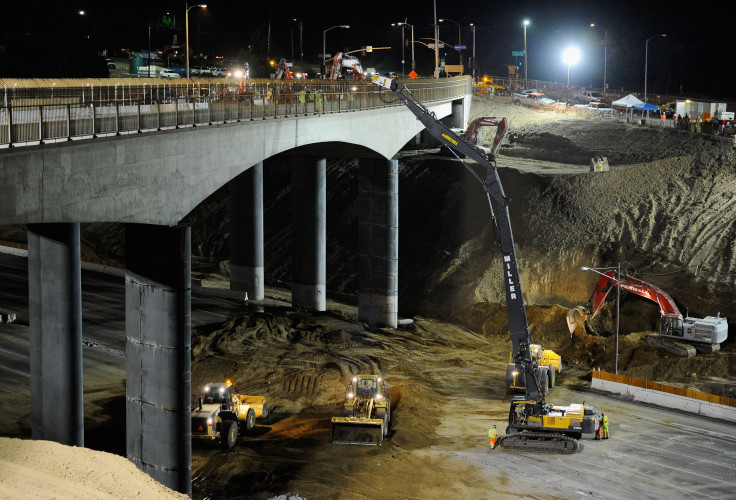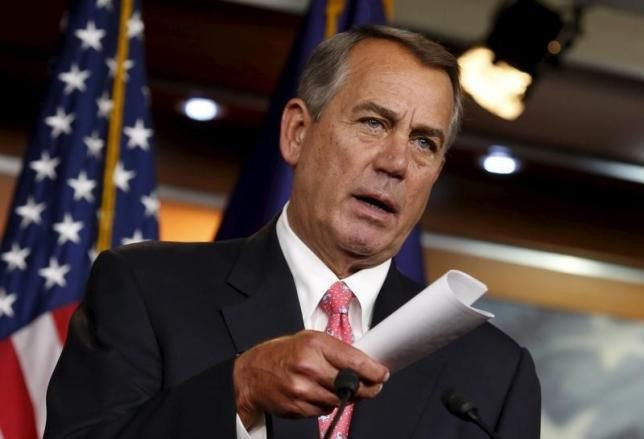'Highway Cliff' Looms As Congress Struggles To Fund Transportation Projects

WASHINGTON -- Congress is rapidly approaching the “highway cliff” -- the latest Washington term to describe a deadline to pass funding. This time it’s the impending expiration of the Highway Trust Fund, the pot of money that the federal government uses to keep the nation’s road projects going. It expires July 31.
On Wednesday evening the Senate voted 62-36 to clear a procedural hurdle to allow a long-term deal to move forward. But finding agreement in Congress to pass the crucial highway funding legislation remains a difficult task. Without a renewal, the federal government would no longer be able to issue funding for projects where states and the feds split the tab, like major bridge construction and Interstate work.
“It’s a bipartisan, long-term, multi-year measure that will fund our roads, highways and bridges longer than any transportation bill considered by Congress in a decade,” Senate Majority Leader Mitch McConnell said on Wednesday morning. “And this highway proposal will do so without raising taxes or adding to the deficit. It will give state and local government the kind of stability and certainty that they need to better plan road and infrastructure projects into the future while providing them with more flexibility in pursuing those projects.”

The six-year bill would fund programs using a series of offsets but only includes funding sources for the next three years. Democrats are unhappy about the source of the money; conservative Republicans are unhappy that it isn’t fully funded.
The deal was negotiated by McConnell and Democrat Sen. Barbara Boxer. But despite Boxer’s blessing, on Tuesday Senate Democrats blocked the bill, saying they hadn’t had enough time to read the 1,030-page piece of legislation. Boxer negotiated another deal to assuage Democrats, promising more money for transit projects that were not historically included in the highway bill.
For the past several years, Congress has taken to passing short-term extensions of the highway trust fund. They have passed a total of 33 short-term extensions: They keep the fund working, but provide little long-term assurance that Congress is going to fund the programs or secure a permanent funding source.
The House is prepared to do that again. Last week, the lower chamber passed another extension. The $8 billion bill would keep the fund working until December. The hope for House leadership was to delay the negotiations in the Senate. House Speaker John Boehner argued the short-term extension would allow more time for negotiations.
But Congress is also approaching another significant deadline -- when the calendar flips to 2016, the complications of an election year often make it impossible to pass any comprehensive compromises. Lawmakers start to have ballot boxes on the brain. And with five members of the Senate running for president, that will make finding agreement event more difficult.

Complicating the matter is the future of the Export-Import Bank -- a government agency that issues loans to foreign entities to purchase American-made goods like Boeing airplanes and Caterpillar tractors. Conservatives banded together to kill the bank, delaying any votes on reauthorization beyond the June 30 deadline. But now supporters of the bank in the Senate are eying the transportation bill as an avenue and want to attach a renewal.
The move to add Ex-Im, as the bank is more commonly known, to the transportation bill is a gamble by supporters that the bank has enough support in the House. Boehner has said if the Senate attaches Ex-Im to the highway funding, he would allow opponents of the bill to try to remove it via an amendment. Supporters think that between Democrats and pro-bank Republicans, there will be enough support to keep the renewal in the bill.
But that’s why the House is trying to avoid the long-term bill altogether. If it forces the Senate to accept its short-term extension, then the Ex-Im bank stands almost no chance of renewal before the year is over.
© Copyright IBTimes 2025. All rights reserved.






















